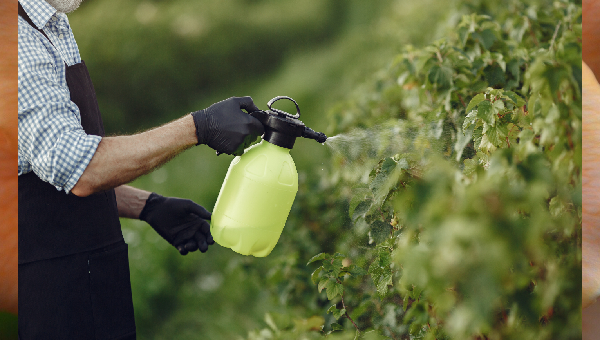Post-Rain Pest Control: Simple Tricks That Work

Rain can be that refreshment of the parched garden, the cleanser of the dust around us, and the cooler of the air. However, when the rain ceases, another truth can come to light (and not a pleasing one at that): it is the increase in pest activity. The presence of puddles of water, softened soil, and moisture due to humidity is the best breeding environment for unwanted insects and rodents. Whether it is ants scurrying into your kitchen as a result of the rain or mosquitoes breeding in the blocked gutters, the infestation after the rain may seem endless. Gladly, there are effective and not so difficult to implement tricks which will help you to take control of your home and yard back. In this article, we will discuss how to get rid of pests after a rainstorm, most naturally and effectively, if possible.
Why Rain attracts some Pests in your Home
After it rains, your house can become an animal shelter. The floods force ants, roaches, termites, and rodents out of their flooded burrows or nests, and they start looking for dry, warm areas to nest. Your house, with its little cracks, food residue, and constant warm environment, turns out to be an ideal hiding place. Stagnant water also presents the mosquitoes with the best breeding ground. It is not a sure thing when it comes to moisture that your house is already clean to some extent. As long as water exists, the pests will welcome themselves into your home. It would, therefore, be advisable to do it then, after a rainstorm, when the infestation has not yet gotten worse.
Begin with a Good Household Inspection
Just as you can not jump into sprays or treatments, you can start by making a round of your house and doing a thorough inspection. Check places where water collects, like gutters, corners of your backyard, around air conditioning units, and those areas in the landscape that are low. All these are probable breeding places of mosquitoes. Also, you must inspect breaks or gaps in new cracks in the foundation, windows, or door frames. Rains tend to wash away soil and open up space through which pests can creep. Be aware of the humidity that accumulates in the basement, attics, and crawl spaces. A minor leak may cause a great disaster if not taken care of.
Cover the Entry Points and Fix the Damage Immediately
After locating the areas of problems, take action and seal them right away. Small gaps around windows and doors may also be sealed using silicone caulk. Install new weather stripping for old stripping, and mend broken window screens. Ensure that doors are shut completely and sealed such that rodents can not get into them, especially at the bottom. In case you spot any leaking pipes and or drainage systems, this should be handled as soon as possible. A mere drop of water is sufficient to invite the thirsty creepers, such as silverfish, ants, and rats as well. Correction of these minor structural problems prevents the entry of pests and long-term water damage to your house.
Keep Your Substances Quenched both out and In
Most of the pests like moisture, and therefore it is crucial to dry things up as soon as possible. Put a fan or dehumidifier in wet places such as the basement or bathrooms. Leave open windows when the condition allows fresh air to move around. In case you have experienced indoor flooding, even minor, ensure that within the next 24-48 hours, the area is dried up to avoid a mold and pest problem. Exterior, ensure that your yard is well-drained. Make sure that your downspouts and gutters are clean so that no water amasses around the foundation of your home. Keep the shrubs clipped and the lawn mowed; what better place to make their home than in long grass and moist piles of leaves? If you own a garden, apply a sparse amount of mulch, since this may contain moisture and insects.
Eliminate Clutter, Block Srouthing Places
When there is a storm, then things get messy, i.e., fallen leaves, scattered pots, and even broken branches can become shelters for the pests. Go for a walk around your yard and eliminate water attractants and any shelter. At home, eliminate clutter around areas where pests thrive, like under sinks, in the back of appliances, or in storage containers. Roaches and rodents particularly love living in uncleaned and untouched settings; therefore, cleaning and organization of regular ridings is a simple yet efficient preventive measure. Keep food in airtight containers and do not leave pet food out at night. Lock garbage bins well and wash them regularly to check the accumulation of odors.
Use Natural Repellents That Work
There are loads of tools that nature provides to enable you to take on the pests without any unfriendly chemicals. One of the simplest and safest methods for holding off the insects in a natural way is with the help of essential oils. Eucalyptus, citronella, peppermint oil, and lavender possess properties that repel insects. Rattle and spray near doors and windows, corners in the kitchen, and other places that are prone to pests. This not only helps keep away the bugs, but also makes your home smell fresh and clean.
Homemade Garlic and Vinegar Spray
You can spray garlic and vinegar around the yard, which is a natural remedy, especially after it rains. Strain the liquid, and the following day, add a cup of white vinegar. Put it in a spray container and use it on plants, entrances, and other areas where you notice insects. The strong, pungent smell is sufficient to drive away the majority of the bugs, particularly the ants and aphids, yet it is safe to apply around dogs and kids. Don't forget to use it only where there is a need, since it can be too much inside the house.
Pest Deterrents: Dry Coffee Powder and Citrus Peels
Your used coffee grounds might have already found their way to the trash, but not so fast, they can also be used in your war against post-rain pests. Allow the grounds to dry and sprinkle them in the garden beds, along entryways, or trash cans. Coffee odour is not liked by ants, and it also disrupts their scent trail. Peels discovered in citrus are good too. Orange or lemon peels can be kept near the windows and the doors to keep disease-causing spiders and flies away. The natural solutions will provide you with a solution that is not chemical-based and eco-friendly, in particular, when you have common rains and when you want to see your protection ready often.
Make DIY Trappings to Deal With Indoor Infestation
The pests may get into the premises even though you do everything possible. Domestic traps can be a timely solution in these cases and a very inexpensive one. Fruit flies can be captured quickly using an improvised trap: two items, apple cider vinegar, and some dish soap in a jar, attract the flies, and prevent them from flying out. Ants apply a one-to-one ratio of Borax powder and sugar and sprinkle it on the sighting area of the ants. The only thing is to ensure that pets and children do not get access to the traps.
Concentrating on Avoiding Future Infestations
Prevention of the re-entry of pests is one of the cleverest moves you could ever make after getting rid of those pests successfully. Keep up the yard, lower the moisture, and replace the all-natural sprays. Use door sweeps and screens, and do not allow drains to be blocked. It is far easier to prevent pests before they settle than to face an invasion. Train your relatives on why they should be clean and create a post-rain inspection in your family.
Get Expert Aid When It Is Time
Other infestations could be too severe to control by yourself, no matter how hard you try. Stuck droppings, odd night noises, or visible wood and wire damage are the signs that it is high time to invite a licensed pest control master. Select a person who gives options of low-toxic or eco-friendly products. This is in case you have children or pets in the house. Regular professional inspection can also assist you in detecting infestation early enough before the entire repair is costly in the future.
Don't forget to Pest-Proof Your Garden
Among homeowners who take gardening so seriously, there should be protection of their outdoor plants against pests after the rain. The moisture of the soil will encourage the growth of pests such as snails, slugs, and aphids. To keep your plants safe, sprinkle some ground-up eggshells around the stems or sprinkle diatomaceous earth (they are both beneficial in repelling creepy crawlers). Alternatively, the neem oil spray is also a safe and natural alternative to repel bugs. It is safe on vegetables, flowers, and herbs, and yet has strong bug power. Be careful not to overwater, and occasionally look at the leaves at a glance to spot pests at an early stage. Pests can also be kept at bay through natural means by practising crop rotation and companion planting, which minimises problem-solving.
Conclusion
Although rain would indeed attract different kinds of pests to and near your house, doggedness, hygiene, and homemade solutions can go a long way in keeping the pests at bay. You can deal with minimal infestation using simple household items and acting with haste so that you do not have to resort to strong chemicals. Each action you can do, including locking up a small crack or spraying your homemade peppermint mist, establishes a more formidable barrier to unwanted guests. Then the rain starts, or more clouds come rolling in next time, you can rest assured that you have some simple, but easy-to-follow tricks at your disposal, which will help.
Must read this: After the Storm: How to Kick Insects Out of Your Home Naturally








